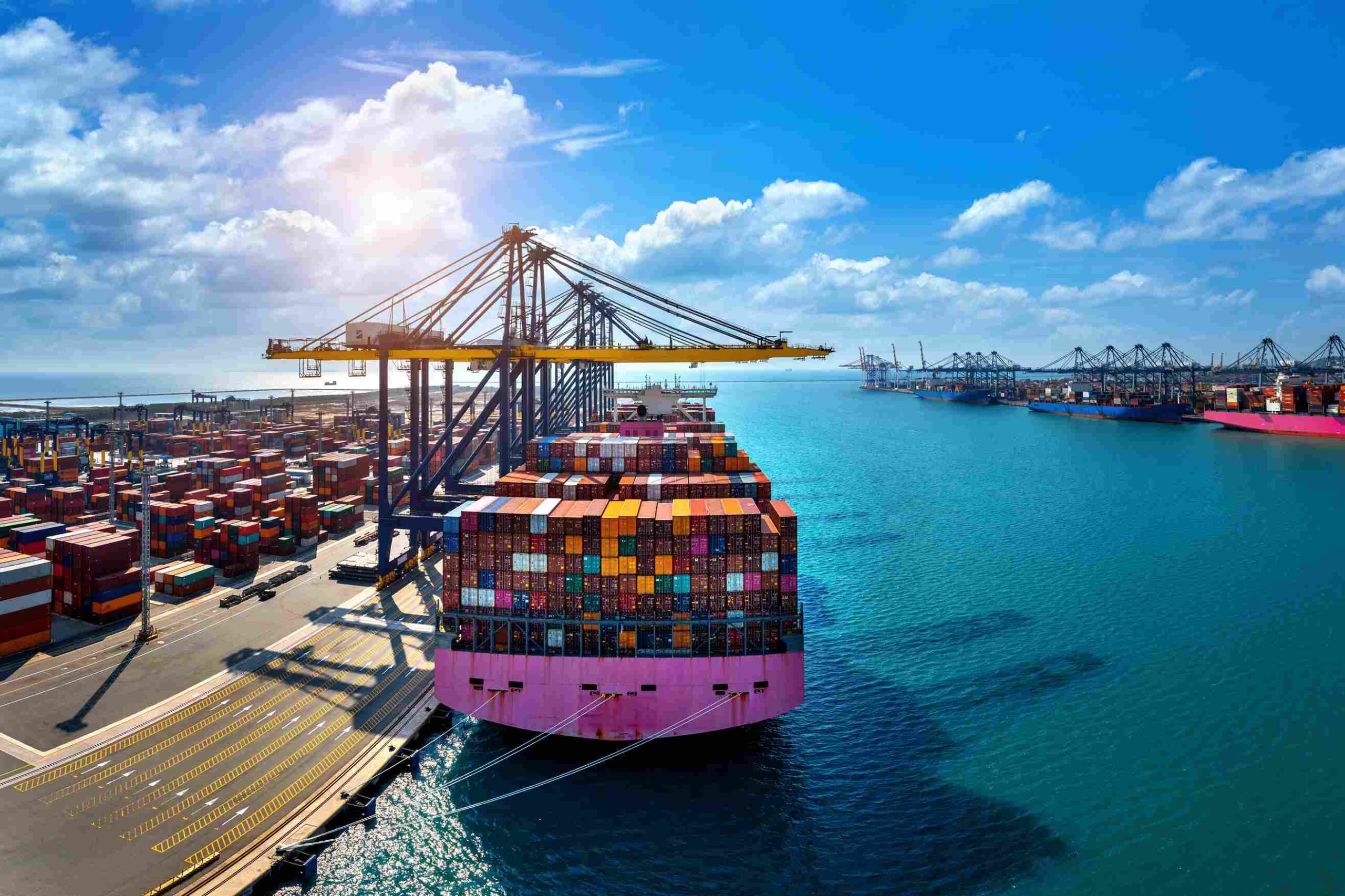


ESG highlight from operating investments where we hold significant influence.
89%
Have ESG or HSE policies in place
0%
Fatalities reported
4
ESG topics monitored across portfolio
67%
With board-level ESG oversight
5,500+
Jobs supported
65%
Women in the workforce
At INA, responsible investment is core to our mission — building long-term national wealth while supporting inclusive, sustainable development.
We integrate Environmental, Social, and Governance (ESG) principles across every stage of our investment process, from due diligence to active ownership. This approach helps us manage risk, unlock long-term value, and align with both Indonesia’s development goals and global sustainability standards.
By investing responsibly, INA multiplies impact — not just returns.
Our investments drive financial and economic multipliers, support job creation, and strengthen Indonesia’s future resilience.
At INA, our approach to sustainable practices is anchored on three key pillars: ESG Integration, Active Ownership, and Green Energy and Blue Economy Sector Development.
At INA, our approach to sustainable practices is anchored on three key pillars: ESG Integration, Active Ownership, and Green Energy and Blue Economy Sector Development.
ESG Integration
> Learn MoreActive Ownership
> Learn MoreGreen Investment Sector Development
> Learn More
Measuring Impact, Strengthening Trust
The Socio-Economic Impact Report provides an independent, evidence-based assessment of how responsible investment delivers lasting value for Indonesia’s economy and society.
The study highlights measurable outcomes such as Gross Domestic Product (GDP) contribution, employment opportunities, and emissions reduction, reflecting INA’s commitment to transparency, accountability, and long-term national development.
Measuring Impact, Strengthening Trust
The Socio-Economic Impact Report provides an independent, evidence-based assessment of how responsible investment delivers lasting value for Indonesia’s economy and society.
The study highlights measurable outcomes such as Gross Domestic Product (GDP) contribution, employment opportunities, and emissions reduction, reflecting INA’s commitment to transparency, accountability, and long-term national development.
We strive to integrate material ESG considerations throughout the investment process not only to effectively manage ESG risks but also to optimize sustainability opportunities within our investment portfolio

We strive to integrate material ESG considerations throughout the investment process not only to effectively manage ESG risks but also to optimize sustainability opportunities within our investment portfolio.
ESG Screening, Preliminary Assessment, and Due Diligence (1, 2, 3)
The initial screening refers to INA’s exclusion list, followed by ESG due diligence or assessments to identify material risks and potential value creation opportunities for the target company.
ESG Recommendations (4)
Material ESG recommendations are taken into account in investment decisions and integrated into transaction documents as necessary.
ESG Roadmap Development and Reporting (5)
INA seeks to collaborate with portfolios to develop tailored ESG roadmaps and targets, aligned with the investment structure and ownership. We are committed to regularly reporting ESG implementation to ensure transparency and strengthen stakeholder engagement.

Our ESG Focus Area
GHG Emission & carbon pollutant
Energy management
Water management
Waste management
Ecological Impact
Labor practices and training
Health and safety
Engagement, diversity & inclusion
Community engagement
Workforce and economic growth
Business model resilience
Business ethics and anticorruption
INA ensures that its own operational processes reflect its responsible investment principles.
This includes implementing governance structures, monitoring environmental impact, and aligning internal policies with global and national sustainability standards.
Our internal procedures ensure that INA operates transparently and efficiently, reinforcing our commitment to responsible investment.
At INA, we are committed to reducing our carbon footprint through practical, measurable steps. Since 2024, we have introduced electric vehicles to help lower Scope 1 emissions from operational activities. In line with our efforts, we also purchased Renewable Energy Certificates (RECs) to offset our operational Scope 2 emissions for 2023 and 2024. We believe transparent monitoring and concrete action are essential to supporting the transition to a greener future.
100%
of Operational Scope 2 GHG emmisions offset over past 2 year
We promote a diverse workforce with a focus on ensuring equal opportunity at all levels of the organization. Our diversity targets reflect a sustained commitment to representation.
40%+
Women in our workforce – a target we have consistently met across the years.
45%
Women in managerial role – reflecting strong representation in leadership positions.
INA works closely with portfolio companies to manage ESG risks, improve governance, and advance sustainability practices. Our approach is flexible — tailored to each investment — but always focused on material issues that drive long-term value.

Key
Focus
Areas
Corporate Governance
Compliance with good governance principles, including the availability of a code of ethics, anti-bribery and anti-corruption policies, as well as whistleblowing systems.
Board of Directors Oversight
Active involvement of the Board of Directors in overseeing and managing ESG-related issues.
Sustainability
Development of strategies and plans to effectively manage sustainability issues, such as energy efficiency, greenhouse gas emissions management, and whistleblowing system development.
Human Resources
Availability of strategies and plans to develop a skilled, diverse, and inclusive workforce.
Toll Road Sector
PT Rafflesia Investasi Indonesia (PT RII) is a toll road platform jointly established by INA, Abu Dhabi Investment Authority (ADIA), and APG Asset Management. It manages four strategic toll road assets:
As a newly formed entity, PT RII has prioritized sound corporate governance across the platform and its underlying assets. In 2024, the company adopted several key policies, including:
Code of Ethics
Third-Party Policy
Environmental, Social, and Governance (ESG) Policy
Anti-Bribery and Anti-Corruption Policy
Together with INA, ADIA, and APG, PT RII also developed a Sustainability Roadmap and KPIs focusing on:
Energy efficiency improvements
Enhanced employee training
Strengthened quality management systems


INA is committed to supporting the global climate agenda by directing strategic capital toward sectors that enable Indonesia’s transition to a low-carbon economy.
Our green investment strategy focuses on:
Energy transition
Clean technology
Natural capital and blue economy

The Bakauheni–Terbanggi Besar (BTB) Toll Road spans 141 kilometers as the first phase of the 2,974-kilometer Trans-Sumatra Toll Road. Developed through a partnership between INA, a wholly owned subsidiary of the Abu Dhabi Investment Authority (ADIA), and APG Asset Management, it connects Bakauheni Port, Sumatra’s main gateway to Java, with Central Lampung, forming a vital part of Indonesia’s national logistics corridor.
This investment strengthens connectivity, reduces travel time, and improves logistics efficiency across southern Sumatra. By facilitating better access to trade, services, and essential infrastructure, the project contributes to inclusive growth and balanced regional development.

Located along the strategic Malacca Strait, the Belawan New Container Terminal (BNCT) is part of North Sumatra’s port development through a strategic partnership between INA and DP World.
This international port strengthens Indonesia’s maritime logistics modernization by improving port efficiency and direct-call services, reducing reliance on regional hubs. BNCT also promotes sustainable port operations and enhances national trade competitiveness through modern, low-emission infrastructure.